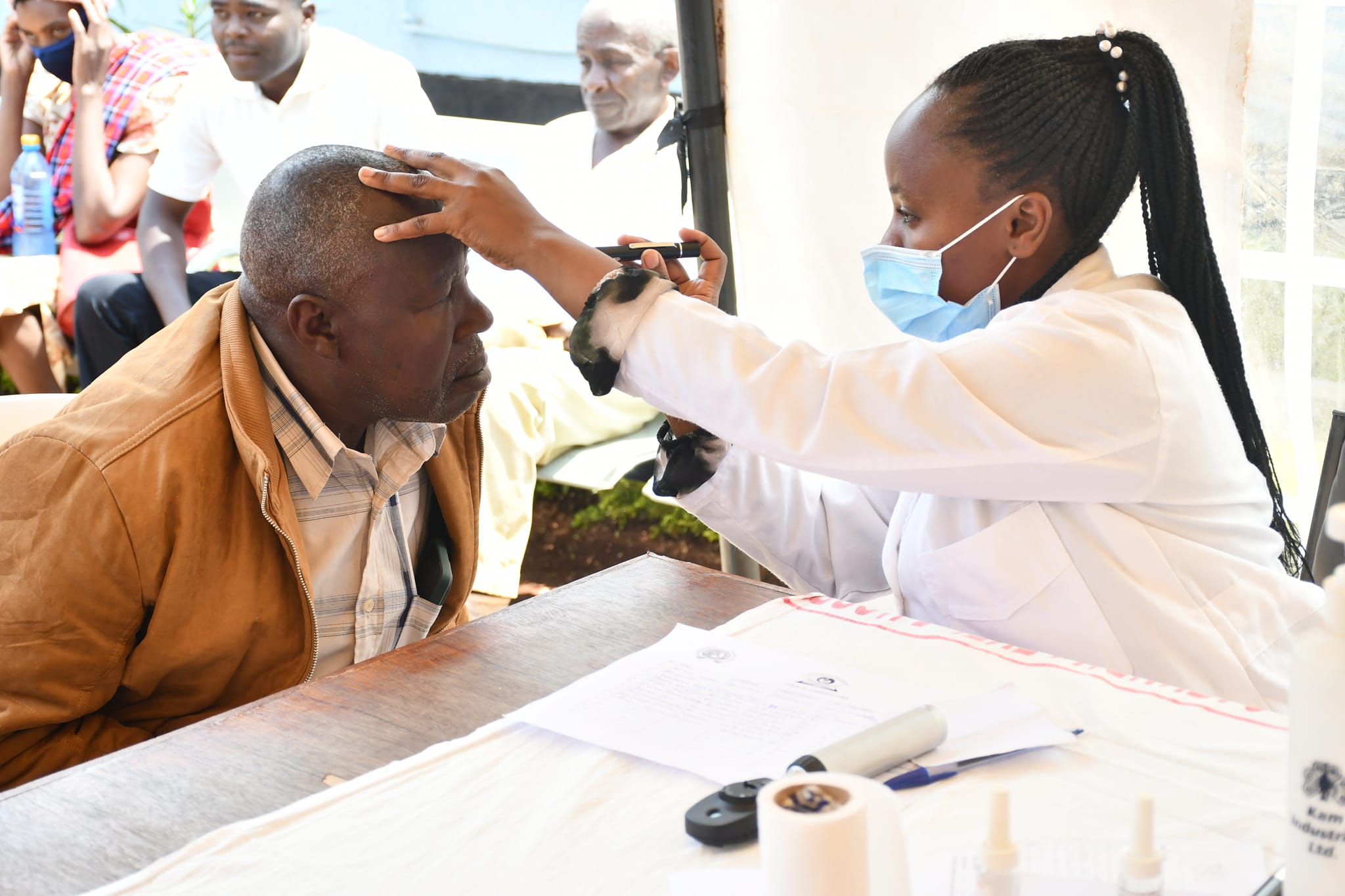Medical experts from the Academic Model Providing Access to Healthcare (AMPATH) which is a partnership between Moi University as well as Moi Teaching and Referral Hospital in the Nyanza, South Rift, and Western regions have advanced an outreach in awareness creation and sensitization of the Burkitt Lymphoma Disease.
According to Dr. Raphael Koima, the Burkitt Lymphoma Program Coordinator the disease is a form of non-Hodgkin’s lymphoma in which cancer starts in immune cells called B-cells and majorly affects children from the age of 7.
Koima further noted that Burkitt Lymphoma which more often than not affects more males than females is recognized as a fast-growing human tumor, associated with impaired immunity and kills fast if left untreated.
The medic who was speaking to Kenya News Agency at the sidelines of a sensitization forum for community health workers in Kericho also pointed out that Burkitt Lymphoma particularly affects young children also suffering from malaria and Epstein-Barr (the virus that causes infectious mononucleosis).
“That is why the sensitization forums are currently focusing on malaria-prone regions including Busia, Siaya, Kisii, Bomet, Kitale, Bungoma, Kakamega, Migori, Homa Bay, and Kericho among others with the aim of disseminating information to the community health assistants about the disease,” added Koima.
The medic expressed satisfaction that the sensitization team has been able to reach out to Community Health Assistants, equipping them with knowledge about the disease and the latter are expected to enlighten their respective communities on how to observe signs and symptoms of Burkitt Lymphoma in children for them to seek medical attention promptly.
“The signs arise from the body regions affected. Children can have facial masses, unilateral or bilateral, others may have difficulty in breathing, abdominal swelling meaning the lymph nodes around the abdomen are affected, and swollen testis. Parents should observe the abdominal swelling because sometimes it cannot be very evident at first before it gets advanced so they can go to a nearby health facility for screening,” Koima stressed.
He also raised concern over the escalating use of herbal medicine for cancer patients which he said was dangerous for body organs like kidneys due to lack of control over the level of toxicity adding that it was not the recommended form of treatment.
“We are losing many cancer patients in our regions due to the belief and excessive use of herbal medicine which is not issued by professional doctors. Use of herbal medicine and witchcraft are not advisable and we are encouraging members of the public to follow the right medical procedure,” said Koima.
He noted that Burkitt lymphoma spreads so quickly, therefore prompt diagnosis was essential explaining that if the disease is suspected, all or part of an enlarged lymph node or another suspicious disease site will be biopsied where a sample of tissue is examined.
“The other new modality for diagnosis is flow cytometry whereby, once a biopsy is taken and rushed to the machine, specialists get the results in 24 hours which is a quicker way of diagnosing as compared to the normal process which may even take five to 15 days to get results yet the disease continues to grow and spread faster,” he added.
According to the medic, Intensive intravenous Chemotherapy is the preferred treatment for Burkitt lymphoma. He said the disease can spread to the fluid surrounding the brain and spinal cord, and so Chemotherapy drugs may also be injected directly into the cerebrospinal fluid, a treatment known as intrathecal chemotherapy.
“As a parting shot, Burkitt Lymphoma is curable and we advise patients to seek medical attention in good time and follow the correct treatment process from professional doctors,” said Koima.
In the World Health Organization classification, there are three types of Burkitt lymphoma: Endemic which primarily affects children aged 4 to 7 and is twice as common in boys. The second type is Sporadic which accounts for one to two percent of adult lymphoma cases. The third type is Immunodeficiency and is mostly common in people suffering from HIV/AIDS.


